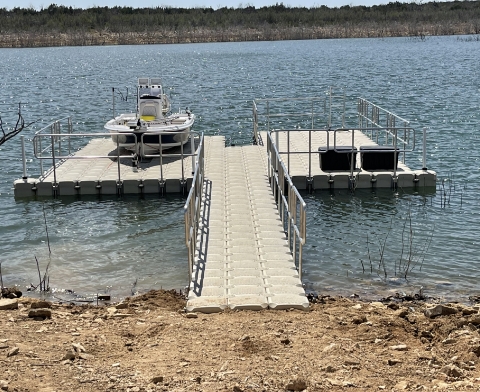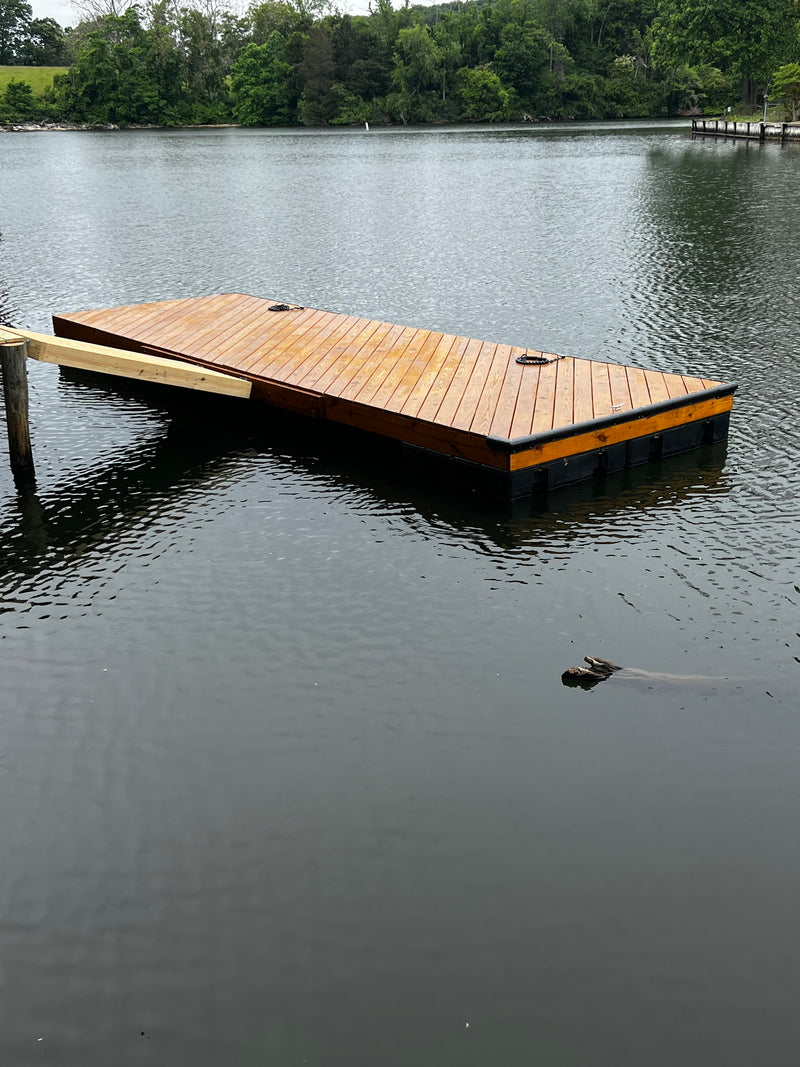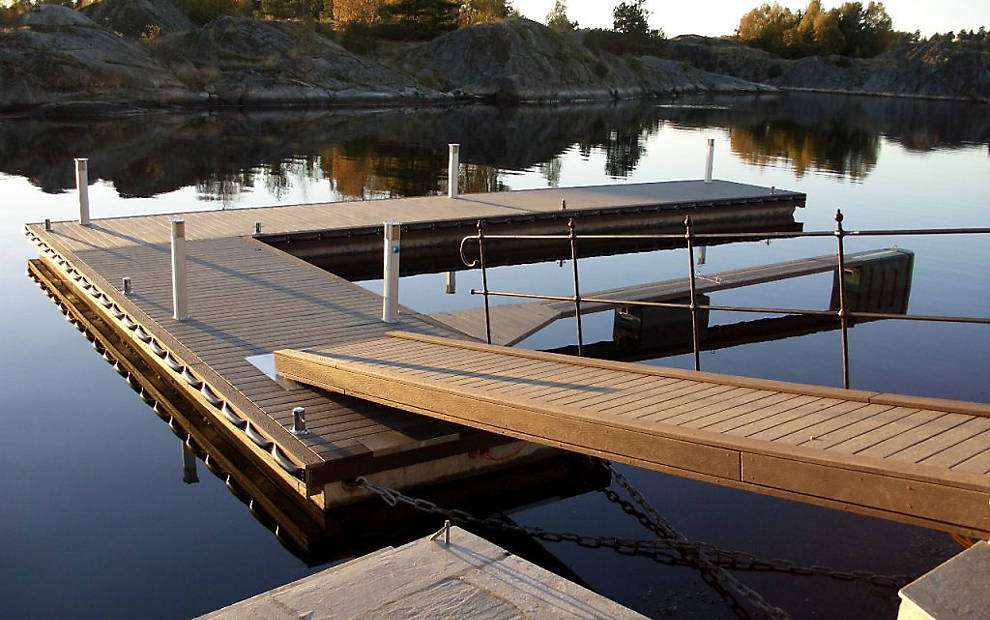The Ultimate Overview to Selecting the Best Floating Docks
Selecting the optimal floating dock needs a comprehensive understanding of numerous aspects that affect both efficiency and durability. Elements such as dock kinds, materials, and important functions dramatically influence your decision-making process.
Recognizing Floating Dock Types
When selecting a floating dock, it is necessary to understand the different types readily available, as each offers distinctive purposes and applications. Floating docks mostly fall right into three categories: modular, fixed, and pontoon docks.
Modular docks are composed of private areas that can be quickly constructed or reconfigured, making them perfect for changing water levels and varied uses, such as recreational tasks or commercial operations. Their flexibility permits modification based on certain needs.

Pontoon docks are defined by their buoyant framework, frequently made up of numerous pontoons that provide security and assistance. They are particularly appropriate for larger vessels and are frequently utilized in marinas or for waterfront homes. Recognizing these types aids in selecting the most proper floating dock to meet details requirements, guaranteeing ideal functionality and security.
Trick Products for Toughness
Picking the appropriate materials for floating docks substantially influences their toughness and long life. The most usual materials include timber, plastic, steel, and composite products, each offering unique advantages and constraints.
Timber, commonly preferred for its visual charm, calls for routine upkeep to endure dampness and decay. Pressure-treated lumber can boost resistance to rot, yet it might still be vulnerable to parasites and weathering.

Plastic docks, made from high-density polyethylene (HDPE), are immune to rust, UV radiation, and impact, making them a prominent choice for coastal environments. Their lightweight nature likewise helps with easy setup and moving.
Steel docks, generally built from aluminum or galvanized steel, give extraordinary toughness and durability. They are resistant to corrosion, specifically when dealt with, however might need additional insulation to avoid heat buildup in hot environments.
Composite products, integrating wood fibers and plastics, supply the advantages of both timber and plastic, standing up to dampness and fading while needing very little maintenance. - floating dock company
Inevitably, the choice of materials ought to straighten with environmental conditions, meant usage, and maintenance preferences to make certain the floating dock stays practical and cosmetically pleasing gradually.
Necessary Features to Take Into Consideration
While the choice of materials is crucial, thinking about vital functions for floating docks is similarly crucial to ensure optimal efficiency and individual complete satisfaction. One vital feature to evaluate is the dock's buoyancy capacity, which determines just how much weight it can support without submerging. floating dock builder. This is important for suiting boats, personal watercraft, and even leisure tasks
Furthermore, mobility is a substantial factor to consider. Depending on your needs, you might want a great site dock that is simple to disassemble and transport, especially if you prepare to transfer it seasonally. Stability is one more essential function; a well-designed floating dock should decrease motion brought on by wind and water currents, providing a secure platform for individuals.
Safety and security features, such as non-slip surface areas and rounded edges, are likewise important to prevent mishaps, particularly in wet problems. In addition, think about the schedule of devices, such as cleats, ladders, and bumpers, which can enhance the functionality of your dock.
Installment and Maintenance Tips
Establishing and preserving a drifting dock needs mindful planning and attention to information to ensure its longevity and optimum efficiency. Begin by picking an ideal place that lessens exposure to strong currents and waves, which can trigger wear and tear. Make sure that the water deepness suffices for the dock's height which it is anchored safely to avoid activity.
During installment, comply with the additional info supplier's standards closely, as incorrect setting up can endanger security. Use high-grade materials resistant to rust, such as aluminum or dealt with wood, to improve resilience. Regularly inspect all parts, including drifts, connectors, and anchoring systems, for indicators of damages or wear.
Maintenance is crucial for expanding the life of your dock. Tidy the surfaces regularly to prevent algae buildup and check for any kind of loose installations that might require firm. If your dock makes use of flotation gadgets, ensure they stay totally free and undamaged from leaks. In addition, consider applying safety finishings to wooden elements to lower weathering effects. By adhering to these installation and maintenance suggestions, you can take pleasure in a functional and trustworthy floating dock for years ahead.
Budgeting for Your Dock
Budgeting for your dock is an essential action that can considerably affect your general fulfillment and financial investment in a beachfront residential or commercial property. Establishing a clear budget aids you browse the numerous options offered and guarantees you make informed choices that line up with your economic capabilities.
Begin by figuring out the dimension and style of the dock you require, as these aspects will substantially affect the expense. Floating docks can vary substantially in price, depending on Look At This materials, buoyancy, and functions like accessories and ramps. Research study various producers and distributors to compare rates and recognize the market value.
In enhancement to preliminary costs, take into consideration recurring expenditures such as maintenance, insurance, and potential repairs. Assign funds for these repeating prices to stay clear of surprises down the line. It's also sensible to budget for any kind of necessary authorizations or examinations, which might be called for by local laws.
Lastly, bear in mind the potential return on investment. A well-planned dock can boost your property's value and appeal, offering a positive monetary effect in the long-term. By budgeting effectively, you can guarantee that your dock fulfills your requirements without endangering your economic stability.
Final Thought
In verdict, choosing the ideal floating dock necessitates an extensive analysis of numerous variables, including dock kinds, materials, vital functions, and setup procedures. Careful factor to consider of monetary restrictions will certainly better make certain a sound financial investment.

While the selection of products is crucial, thinking about vital features for floating docks is similarly crucial to guarantee ideal efficiency and individual contentment.Setting up and preserving a floating dock needs careful planning and interest to detail to guarantee its durability and optimum performance. Floating docks can differ substantially in rate, depending on materials, buoyancy, and features like accessories and ramps.In conclusion, selecting the optimal floating dock necessitates a thorough analysis of various variables, consisting of dock kinds, materials, necessary functions, and installment procedures.